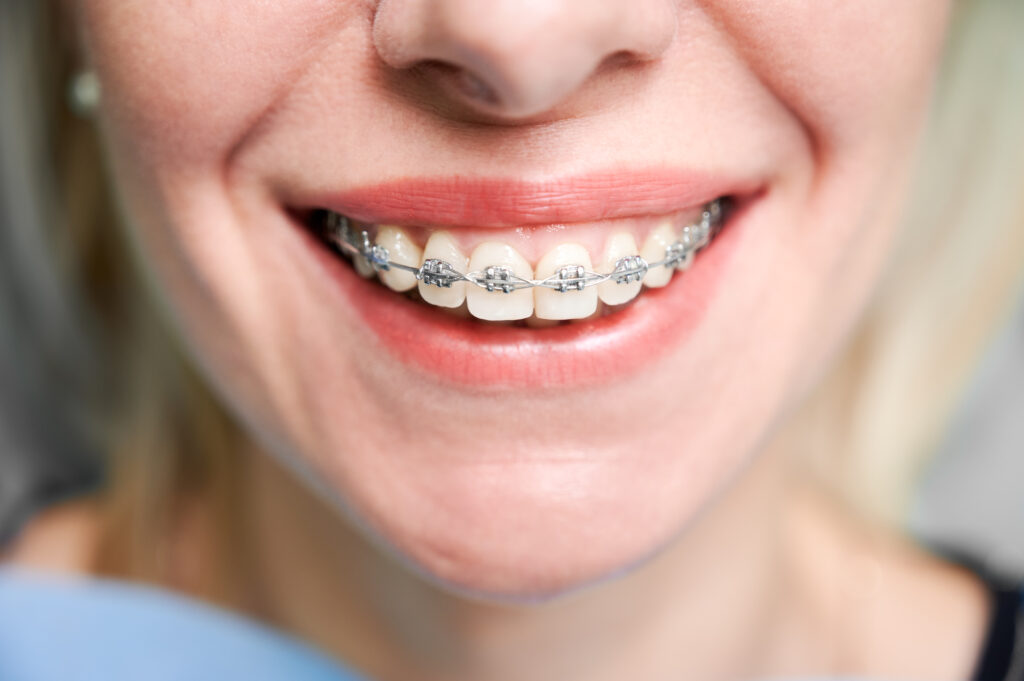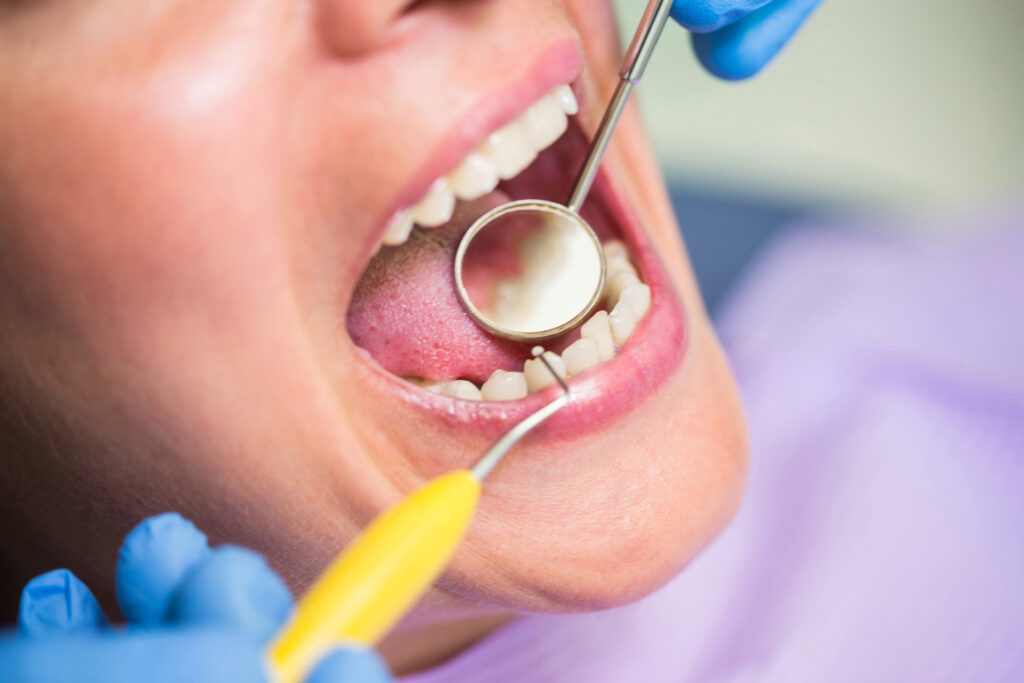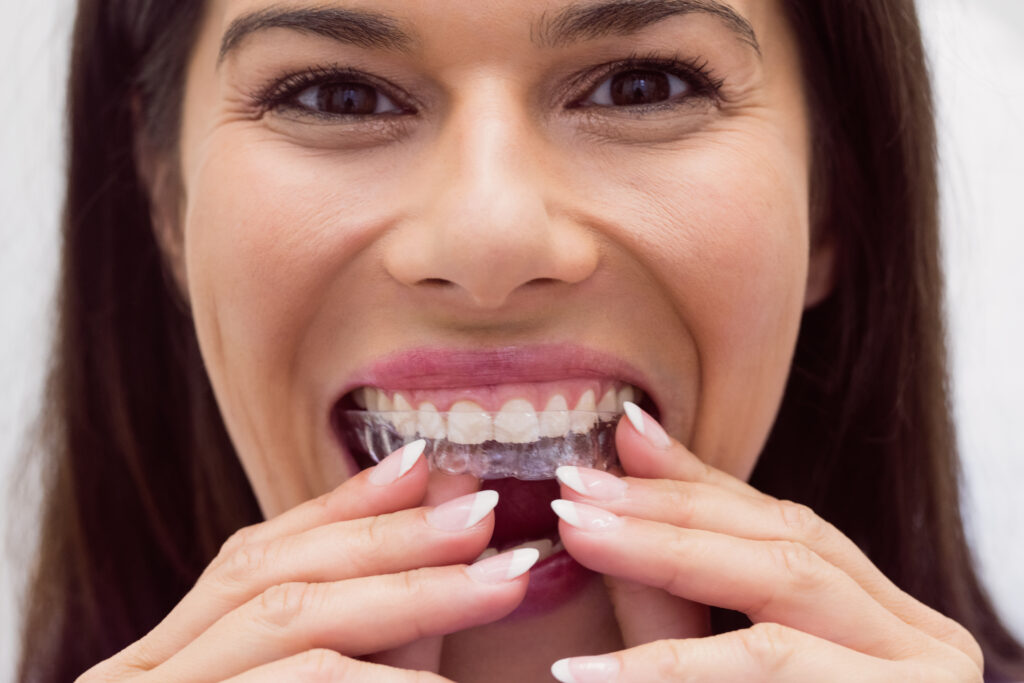When it comes to maintaining your oral health, what you eat is just as important as how you care for your teeth. Certain foods and nutrients can strengthen teeth and gums, whereas others can erode enamel and feed harmful bacteria. The following are key dietary factors that affect oral health.
Sugars and Simple Carbohydrates – Enamel Erosion and Cavities
Why Sugar Fuels Tooth Decay
Every time sugar enters your mouth, bacteria in plaque feed on it and produce acids. These acids lower the pH inside the mouth, breaking down enamel and leading to cavities over time. Sucrose is especially harmful because bacteria use it to build sticky biofilm, which clings to teeth and holds acid close to enamel.
Frequency Matters More Than Quantity
It’s not just how much sugar you consume—it’s how often it passes over your teeth. Frequent snacking or sipping sugary drinks keeps the pH level low, giving bacteria more time to attack the enamel. Having sweets only during meals gives teeth time to recover between acid attacks.
Sticky Or Refined Carbs Are Troublesome
Sticky candies, chips, crackers, and dried fruit tend to cling to teeth and prolong acid exposure. Even refined starchy snacks break down into sugars, feeding bacteria and raising cavity risk.
How To Reduce Sugar Damage
- Limit sugary foods and drinks, especially between meals.
- Drink plain water after sweets or sugary drinks.
- Chew sugar-free gum (especially xylitol) to stimulate saliva and help wash away sugar and acid.
- Wait 30‑60 minutes after eating or drinking before brushing, to avoid brushing softened enamel.
Acids, Nutrients, and Mouth‑Protecting Foods
Acidic Foods And Drinks Erode Enamel
Beverages and foods with low pH—like fruit juices, soda, pickles, citrus fruits, sports drinks, and wine—can chemically wear away enamel even without bacteria.
Acid erosion often begins with thinning enamel, exposing dentin beneath, creating sensitivity and yellowing.
When Acid Combines With Sugar
Drinks like soda or energy drinks contain both sugar and strong acids, compounding damage. The acid erodes enamel while the sugar feeds bacteria, doubling the risk of decay.
Nutrients That Help Strengthen Teeth
Some nutrients play critical roles in preventing damage and healing tissues:
- Calcium and phosphate, found in milk, cheese, nuts, yogurt, and leafy greens, support enamel rebuilding and remineralisation.
- Vitamin D helps your body absorb calcium. Fish, fortified milk, and sun exposure supply vitamin D, which supports enamel integrity.
- Vitamin C is essential for healthy gums. Deficiency may cause inflammation, bleeding, and periodontal disease.
- Other vitamins (E, K) influence wound healing and gum health, though research is still growing.
Dietary Patterns That Support Oral Health
Eating whole, fibre‑rich foods like raw vegetables, fruits, nuts, and whole grains boosts saliva flow and provides micronutrients that support tissue health and enamel repair. Chewing raw vegetables stimulates jaw muscles and saliva, naturally flushing teeth and gently cleaning them.
What To Choose And What To Limit
- Choose: plain yogurt, cheese, milk, green or black tea (polyphenols reduce acid‑producing bacteria), crunchy produce, water with fluoride.
- Limit: sodas, citrus juices, alcoholic and carbonated drinks, energy drinks, pickled items, sticky sweets, processed snacks.
Hydration and Saliva Flow Matters
Saliva Is Your Mouth’s Natural Barrier
Saliva neutralises acids, washes away food debris, and provides minerals for tooth repair. Low saliva (dry mouth) gives bacteria more chances to attack enamel.
How Does Diet Affect Saliva
Dehydration, sugary drinks, and alcohol reduce saliva flow. A diet rich in water, fruits, vegetables, and sugar‑free chewing gum helps maintain healthy saliva levels.
Examples of Dietary Choices and Practical Tips
Morning Meal
- What helps: plain milk or calcium‑fortified plant drink, oatmeal with nuts, whole‑fruit (not juice).
- What harms: sugary cereals, fruit smoothies loaded with sugar, citrus juice sipped slowly throughout breakfast.
Snacks
- Better options: carrot or celery sticks, unsweetened yogurt, cheese cubes, water or green tea.
- To avoid: candies that stick to teeth, soft dried fruit, biscuits, chips between meals.
Drinks Throughout the Day
- Water is the safest drink; fluoridated water offers extra enamel protection.
- Mint or herbal tea without sugar reduces bacteria.
- If you drink fruit juice or soda, consume it quickly and rinse or drink plain water immediately after.
Meals
- Include vegetables, lean protein, dairy or fortified products with calcium and vitamin D.
- Limit sauces, pickled dishes, citrus, or sweets—especially eaten outside mealtimes.
Key Dietary Factors That Affect Oral Health
- Frequent sugar or refined carbohydrate intake encourages acid‑producing bacteria and enamel demineralisation.
- Acidic foods and drinks, even if sugar‑free, chemically erode tooth enamel with repeated exposure.
- Nutrient‑rich foods like dairy, leafy vegetables, fish, and whole grains support enamel strength, gum health and tissue repair.
- Hydration, saliva stimulation and chewing fibrous food support natural defence mechanisms.
- Eating habits matter: limit snacking, pair meals with water, choose crunchy whole foods over soft processed ones.
Final Advice for Better Dietary Support of Oral Health
- Limit sugary foods and drinks, especially between meals.
- Avoid acidic beverages or have them quickly, rinsing with water afterward.
- Include calcium, vitamin D, C sources in your regular meals.
- Chew whole fruits and vegetables, and consider sugar‑free gum with xylitol after meals.
- Drink plenty of water, preferably fluoridated if available.
- Brush twice daily with fluoride toothpaste, floss once daily, and visit your dentist regularly.
Your mouth reflects what you eat. A balanced diet rich in minerals, vitamins, water and fibre—but low in sugars and acids—helps prevent decay and supports strong teeth and healthy gums. By choosing the right foods and habits, you give your teeth—
—and your smile—the protection they need.







